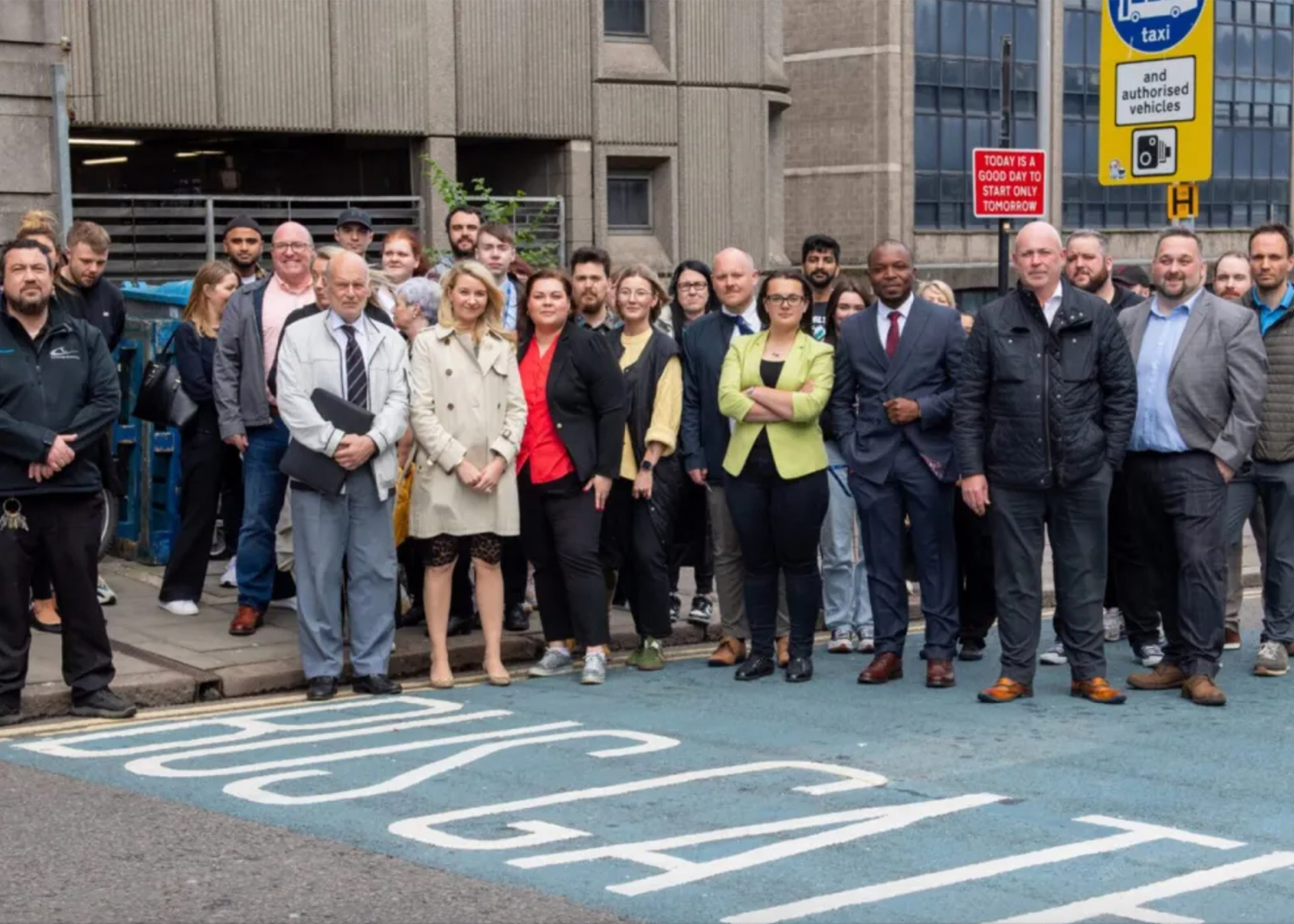Title: Unity in Crisis: Labour and Conservative Councillors Join Forces to Address Aberdeen’s Bus Gate Dilemma
In a remarkable display of bipartisan cooperation, Labour and Conservative councillors in Aberdeen are set to unite in a concerted effort to address the ongoing bus gate crisis that has been adversely affecting local businesses. This collaboration comes in response to the Common Sense Compromise proposed by local traders, which seeks to amend the current traffic measures that have sparked widespread discontent among the business community.
The Bus Gate Controversy
The bus gates, initially introduced as a temporary measure to manage traffic flow in Aberdeen, have become a contentious issue. Despite nearly 12,000 signatures on a petition advocating for modifications, the SNP and Lib Dem administration of Aberdeen City Council is poised to make these measures permanent. A report scheduled for discussion today suggests that the existing traffic management strategies should be solidified, a move that many believe could further harm local businesses.
The Common Sense Compromise
In stark contrast to the administration’s plans, over 11,000 individuals have rallied behind an alternative proposal known as the Common Sense Compromise. This initiative, spearheaded by local traders, aims to strike a balance between maintaining effective public transport and ensuring the viability of city centre businesses. Key proposals within this compromise include:
- Retaining the Guild Street bus gates while imposing restrictions on Schoolhill and Upperkirkgate.
- Removing the bus gates at Adelphi and Market Street, allowing two-way access on Market Street.
- Lifting the bus gate restrictions on Bridge Street to facilitate full access in both directions.
- Eliminating the ban on right turns on Union Terrace.
- Issuing warnings instead of fines for first-time offenders.
- Allocating fines to support city centre businesses through transport initiatives.
These proposals reflect a pragmatic approach to traffic management, aiming to alleviate the burden on local businesses while still considering the needs of public transport users.
Voices of Concern
City planning chief David Dunne has expressed concerns that further adjustments to the current measures could disrupt bus timetables. However, this assertion has been met with skepticism from local business leaders. Bob Keiller, chairman of Our Union Street and the Aberdeen & Grampian Chamber of Commerce, voiced his frustration in the Press & Journal, describing the rollout of the traffic measures as “an unmitigated disaster.” He urged councillors to adopt the Common Sense Compromise to revitalize the city centre and restore public confidence.
Keiller’s plea highlights the urgent need for a solution that prioritizes the survival of city centre merchants, who have been struggling under the weight of the current traffic restrictions. “We need an outcome that shifts the narrative and gives people the comfort they need to return to our city centre,” he stated.
A Rare Alliance
The collaboration between Labour and Conservative councillors is a notable development in the often-divisive world of local politics. Conservative councillor Ryan Houghton emphasized the importance of getting the decision right, stating, “It is not good enough to simply look for reasons to do nothing. Aberdeen deserves better.” Meanwhile, Labour group leader M Tauqeer Malik echoed this sentiment, highlighting the necessity of opposition unity to address the detrimental impact of the current administration’s policies on local businesses.
The Stakes for Local Businesses
Adrian Watson, chief executive of Aberdeen Inspired, has warned that making the bus gates permanent would be “a hammer blow” to city centre businesses that are already struggling for survival. The stakes are high, as the future of many local enterprises hangs in the balance. The collective voice of the business community, alongside the support from opposition councillors, underscores the urgent need for a reconsideration of the current traffic measures.
Conclusion
As Aberdeen City Council prepares to discuss the future of the bus gates, the unity displayed by Labour and Conservative councillors serves as a powerful reminder of the importance of collaboration in addressing community challenges. The Common Sense Compromise offers a viable path forward, one that seeks to balance the needs of public transport with the survival of local businesses. The outcome of today’s discussions could very well shape the future of Aberdeen’s city centre, making it imperative for councillors to listen to the voices of their constituents and act in the best interest of the community.
